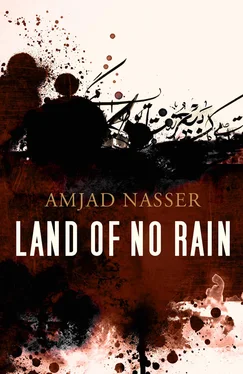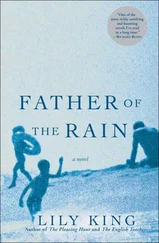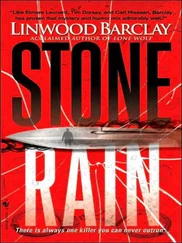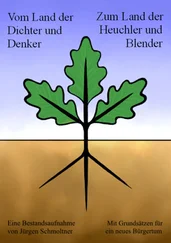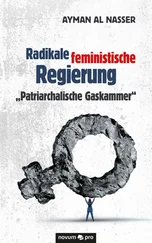He has to know the truth and no one is better placed than me to tell him. If a drop of my blood still runs in his veins he’ll know I’m the only person who didn’t lie to him or humour him, because how can one lie to oneself? Of course, there are people who do, people who deceive themselves, but I think that one decisive moment face to face with one’s self is enough to show one the truth. There are others who didn’t lie to him either: Salem, for example, at least when the conscious half of his brain was able to receive the right signal and he knew who was speaking to him. Wahid brought back memories of a bunch of youthful pranks. And his brother Shihab is rude enough to tell him things he might not like. He believes Shihab. If he wasn’t so rude, Shihab would be a copy of his father.
He looked into a mirror and asked me if he had changed much. I said, ‘Of course you’ve changed. Everyone changes, what else do you expect?’ But out of compassion I did not tell him that the people who were waiting for him at the airport did not recognise him at first. All his family were there, except his late father, his mother and his elder brother, who lives in the Land of Palm Trees and Oil. And when he came through customs pushing his trolley with his suitcase and some plastic bags he almost passed them by without them recognising him. They didn’t believe he was the same person who had once been as tall and elegant as a rattan cane. The torch of the movement. The one on whose shoulders all the world’s devils liked to play. Cheerful. Noisy. Cruel and compassionate. It’s true they had seen his picture in magazines and newspapers, but pictures are one thing and reality is something else. With their expectant eyes they saw what the hammers of time had wrought on his face, his shoulders, his frame and the movement of his hands. They heard his cough, which he tried to cover with a pocket handkerchief that he carried in his hand. His languor was evident, and his helplessness looked deeply ingrained. But members of his family told him he looked younger and healthier than he did in the pictures. It wasn’t true. What mattered to them was that he had returned, not how or in what shape. They colluded, without any overt agreement, in ignoring anything that might spoil the pleasure of his happy return, while for him it was hard enough coming to terms with the shock. Their collusion worked, for a while. He went along with it readily. The City of Red and Grey came to his mind by way of comparison between here and there, in terms of behaviour, orderliness and development, and strangely the comparison usually ended in favour of the last place on his long journey — the City of Red and Grey that he had just left, with his frame bowed and his pocket handkerchief covered in red stains.
That was in the daytime, surrounded by listeners with the intense curiosity of provincials. At night it was a different matter. The whole night was his, the night when his cough and his insomnia never failed to start on time, along with the random disconnected images that crossed his mind. No one can stop the machine of memory from working. Nothing has been invented, as far as he knows, that can tame memory, make it work on demand. Even I, with my few exaggerated memories, cannot fend off attacks by the most unpleasant of them.
* * *
One afternoon his brother Shihab took them for a drive in his father’s old Land Rover, which for years they had used for hunting trips. He thought it a good omen that the vehicle, which he used to call the mechanical steed, was still in use, but he was surprised to find that the civilian airport, which used to be on the outskirts of the city, was now part of the suburbs. He looked out of the car window at the passing scenes but found no reference in his memory: the mansions, the tourist resorts, the big malls, the temporary encampments of people displaced by the blood and fire sweeping the country next door, the vast advertising hoardings for five or six mobile phone companies — written with outrageous spelling mistakes — the glass towers crowned by enormous dishes, the children and old people offering seasonal fruit and vegetables from plastic crates, the shanty towns built of corrugated iron and cardboard, teeming with children and the unemployed. He was filled with a kind of aesthetic numbness at such eyesores and at the renowned establishments that had made the fields of wheat and corn, the groves of pine and juniper trees, a distant memory. He recalled a famous local song that spoke of how the country girls walked around carrying water jars on their heads in the afternoon. He told himself that even the songs failed the test: it was hard to listen to them now that the things they described had changed. He was surprised when the car skidded on the edge of a roundabout in the centre of which stood a large statue of Hamiya’s eagle. The venerable bird looked old, scarcely able to spread the vast wings that used to cast their fearsome shadow over the country. The only familiar landmark that the car passed was this old statue. He suspected his memory was at fault. His brother Shihab smoked throughout the journey, leaving his returning brother to see and compare in silence the new reality with the images he remembered. He asked Shihab if all these buildings had existed before. Shihab told him that most of them were new and that the ring road meant that people going in this direction were spared the trouble of driving through the downtown area, which was congested with cars and pedestrians. But as soon as the Land Rover started to emerge from the built-up labyrinth around the airport, with its chaos and its shabbiness, the space opened out in front of them. The endless desert showed its yellow face and he managed to catch blurred glimpses of shepherds, wrapped as usual in their heavy cloaks.
Once you were a poet. Apparently you no longer know what poetry is or how it’s written. Now you write articles and biographies, without parting company with poetry’s uncertain, hesitant attitude towards the world. Some of what you write is personal, and some of it public, though it’s hard for you to differentiate between the two. You don’t categorise what you write. You just write, but you believe that, besides biographies, you are writing poetical articles. This is not a category that’s recognised on the literary scene, and it’s hard to persuade people that it exists, so you don’t speak about it openly. The truth is you don’t care what it’s called. In the prime of your youth you cared. You and others fought battles over form and content and the link between poetry, reality and the reader. But you no longer do that, now that you harbour doubts. Now you believe that categorising and pigeon-holing don’t achieve anything. That they’re just labels. Your problem is that whenever you write something you rush it into print, especially when you’re working on newspapers and magazines, which, for those who don’t know, are machines that never stop turning, churning out thin gruel and rich cream in equal measure. You’re hasty. Haste is a trait that’s ingrained in you. Despite all your attempts to take it easy and slow down, you can’t change. You see it as a genetic defect that you have to live with. You write in a hurry. You publish what you write without any prior plan or any clear concept or vision of where your writing is leading. But when you reread everything you have written, one piece after another, you can see a common thread, or a mysterious pointer, always pointing in the same direction, even though the pieces were written at different times and under the sway of different emotions. Only then do you get a sense of that obscure something that drives you on towards the lights that flicker in the distance. Then you regret rushing into print, not rushing into writing, and you say to yourself, ‘If only I had sat on what I wrote before publishing it.’ (Despite your long waiting in exile, patience is your deadly enemy.) Perhaps that way you could have come up with a work that had organic unity, or a harmonious sequence in which one part led to the rest, without interruptions, gaps or jumps. But no way! Only after it was too late did that kind of prudence or farsightedness descend on you from the ethereal heights. But that’s all in the past and nothing can be done about it. Now the situation is different.
Читать дальше
